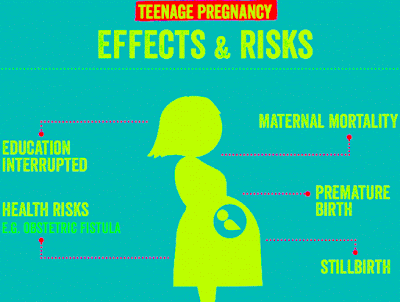Psychological disorders during gestation
Though pregnancy has usually been deliberate a time of sentimental well-being, recent research shows that more than 20% female during gestation suffers from anxiety or mood disorders. Specifically accessible are those female who have histories of psychological problems and don’t continue psychotic medications during gestation. These study appraisals that females who do not continue medication are 5 times as more relapse as compared to females who take treatment properly.
Higher rates of recidivism have also been seen in ladies with bipolar disorder. One study revealed that during the course of gravidity, 70.8% of the female got experience at least one mood event. The risk of frequency was somewhat higher in women who terminated treatment with mood equilibrium (85.5%) than those who continued treatment (37.0%).
Although data accrued over the last 30 years advised that some drugs may be used safely during graveness, knowledge regarding the dangers of prenatal disclosure to psychotic medications is not complete. Thus, it is approximately common for patients to terminate or to avoid pharmacologic regimen during child-bearing.
Measuring the Risks
Female with histories of mental illness frequently come in for the session regarding the use of psychiatric medications during graveness. Not occasionally, ladies present with the first sight of the psychiatric problem while pregnant. Many gestations are unplanned and may occur unwillingly while females are receiving ailment with drugs for psychotic disorders. Many women may stop medications suddenly after learning they are expecting a baby, this may carry substantial dangers for many women.
Decisions about the maintenance or inception of regimen during childbearing must reflect an understanding of the risks associated with fetal disclosure to a particular medication but must also take into consideration the risks associated with underdone psychotic illness in the mother. Psychiatric problem in the mother is not a benevolent event and may cause symbolic morbidity for both the mom and her child; thus, suspending or withholding treatment during pregnancy is not always the intact option.
Anxiety or depressions during gestation have been connected with a variety of antagonistic pregnancy outcomes. Women who faced psychological illness during childbearing are less likely to receive proper prenatal attendance and are more likely to use tobacco, alcohol and another entity is known to adversely pregnancy results. Several types of research have suggested low birth weight and fetal progress adjournment in children born to depressed moms. Pre-mature delivery is another hidden pregnancy sufferings among female experiencing distress during gestation. Pregnancy sufferings related to psychiatric depression and anxiety in late gestation have also been detected, including a raised risk for having (pre-eclampsia), c section delivery, and baby admission to a distinctive care nursery for a variety of treatment including respiratory sufferings, prematurity, and hypoglycemia. These data underline the need to commit a thorough benefit/risk analysis of pregnant female with psychological distress, including checking out the effect of untreated disorder on the child and the mother, as well as the danger of using healing during pregnancy.
Anti-Anxiety Treatment
The emanations of prenatal uncovering to benzodiazepines have been argued for over 20 years. Three anticipated studies backing the absence of raised danger of organ abnormalities following first 3 months hazard to benzodiazepines. More contentious has been the problem of whether first-trimester disclosure of benzodiazepines produces danger for specific malformations. Although primary reports advised that there may be a raised risk of palate and cleft lip, more recent reports have suggested no connection between emanation to benzodiazepines and peril for cleft lip or palate. This danger is numbered to be 0.7%, nearly a ten-fold growth in risk for mouth cleft over that noticed in the general population. Nevertheless, the liking that a female disclosed to benzodiazepines during the first 3 months will give birth to an infant with this congenital aberration, though considerably increased, remains not more than 1%.
Anti-Psychiatric Treatment
In addition to the anomalous anti-psychotic treatment described, recent researchers have not determined teratogenic danger connected with medium or high-potency neuroleptic aids; however, a contemporary meta-analytics of the available analysis noted a higher- potency of inborn malformations after first-trimester disclosure to low-risk neuroleptic factors. In medical practice, high risky neuroleptic factors such as haloperidol, perphenazine, and Stelazine are suggested over the lower risk factors in managing childbearing mother with psychiatric diseases.
Atypical antipsychotic drugs are highly being used to treat a spectrum of psychotic disorders, including psychiatric illness and bipolar disorder and treatment stubborn depression and anxiety. The first and huge published potential study on the conceptive safety of the anomalous agents provided relieving data regarding the danger of malformations in the first few months, although (Abilify) aripiprazole was not among the drugs studied. Researchers prospectively supervised a group of 151 female taking (Zyprexa) olanzapine, (Risperdal), (Seroquel), or (Clozapine) and compared results to controls without disclosure to known as teratogens. There was no diversity between the groups in terms of danger for dominant malformations or rates of neonatal complications or obstetrical.
While this knowledge’s assuring, it is far from actual and large studies are required to provide more data about the fertility safety of these treatments. To this end, the National Gestation Registry has been produced to respectively gather instruction regarding results in infants bared in the uterus to these newer abnormal anti-psychotic medications.
The (FDA) U.S Food and Drug Administration recently amended labels for the whole section of anti-psychiatric medications to include ominous regarding the use of antipsychotic drugs during gestation. The new drug labels now include more details on the potentiality of risk for abnormal muscular movements (EPS) and removal symptoms in newborn infants exposed to these medicines during the last three months of pregnancy. These approvals were derived from conflicting event reporting. While this may warning of a potential problem connected with disclosure to antipsychotic medications, it does not crop accurate knowledge regarding the predominance of an adverse segment.


Comments